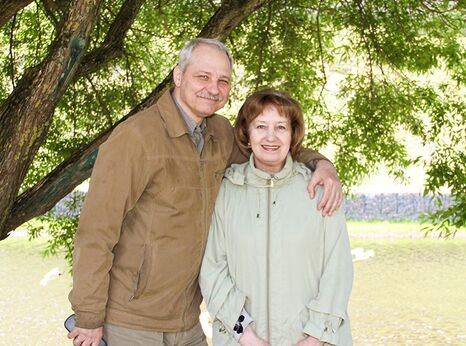Jehovah's Witness appeals long sentence

Jehovah’s Witnesses have faced persecution and harassment in modern Russia since 2009, when a court in Rostov Region in southern Russia banned the local Jehovah’s Witnesses’ organization and declared 34 of their publications “extremist”. In subsequent years, several Jehovah’s Witnesses’ groups across Russia were pronounced “extremist” by local courts. Their prosecution was based on the vague definition of “extremism” in Russian law, in line with the growing practice of its vague application which increasingly targeted political, but also religious and other forms of dissent. In April 2017, the Russian Supreme Court ruled that the central Jehovah’s Witnesses organization in Russia should be closed, its activities stopped, and its property confiscated. This effectively banned all local groups. Since then, any activity on behalf of a local Jehovah’s Witnesses group has been regarded as criminal.
The first Jehovah’s Witness sentenced in Russia to imprisonment is Danish citizen Dennis Christensen who was arrested just a month after the Supreme Court’s decision in 2017. On 6 February 2019, the Zheleznodorznyi District Court in Orel found him guilty of “organizing activities of an extremist organization” (Article 282.2 (1) of the Russian Criminal Code) and sentenced him to six years’ imprisonment. On 23 June, Lgov District Court in Kursk region where Dennis Christensen has been serving his sentence, approved his early release. The court ordered him to pay RUB 400,000 (USD 5,809) for the unserved part of his sentence. Unless the prosecution appeals this decision, Dennis Christensen should be promptly released.
Gennady Shpakovsky became the eleventh Jehovah’s Witness sentenced to jail by Russian courts (including two individuals in occupied Crimea). A criminal case against him was initiated on 31 May 2018. Prior to this, according to information from the international Jehovah’s Witnesses organization, he had been under surveillance by the security services. Gennady Shpakovsky was detained on 3 June 2018 when he was discussing the Bible with his friends.
Armed security services and riot police officers (OMON) broke the door into the flat and conducted a six-hour search of the premises. Gennady Shpakovsky and his friends were then subjected to questioning about their activities for several hours. They reported being threatened and harassed during the questioning. Gennady Shpakovsky was charged with and then convicted for “organization of the activities of an extremist organization” (Article 282.2 (1) of the Russian Criminal Code) and “financing of extremist activity” (Article 282.3 (1) of the Russian Criminal Code).
According to the data provided by the international Jehovah’s Witnesses organization, as of 9 June, criminal proceedings have been opened against at least 346 Jehovah’s Witnesses in Russia under “extremism” charges, and at least 170 individuals have spent time in pre-trial detention. Ten people have been convicted. At least 20 people were remanded in custody as of 9 June, and 22 individuals were under house arrest. At least 927 homes of Jehovah’s Witnesses have been raided since the 2017 Supreme Court ruling, including 126 homes raided in 2020, at the time of the COVID-19 pandemic.
Amnesty International considers the Russian authorities’ decision to criminalise Jehovah’s Witnesses’ teachings and practices an arbitrary and discriminatory measure, and a violation of the right to freedom of religion. The organization has called on the authorities to quash these decisions. It has also consistently stressed that anti-extremism legislation in Russia is often applied arbitrarily and has called on the authorities to review the relevant legislation and practice and bring them in line with international standards. Amnesty International considers any Jehovah’s Witness deprived of their liberty solely in connection with the peaceful exercise of their right to freedom of religion to be prisoners of conscience. They must be immediately and unconditionally released, all convictions quashed and all pending charges against them dropped.